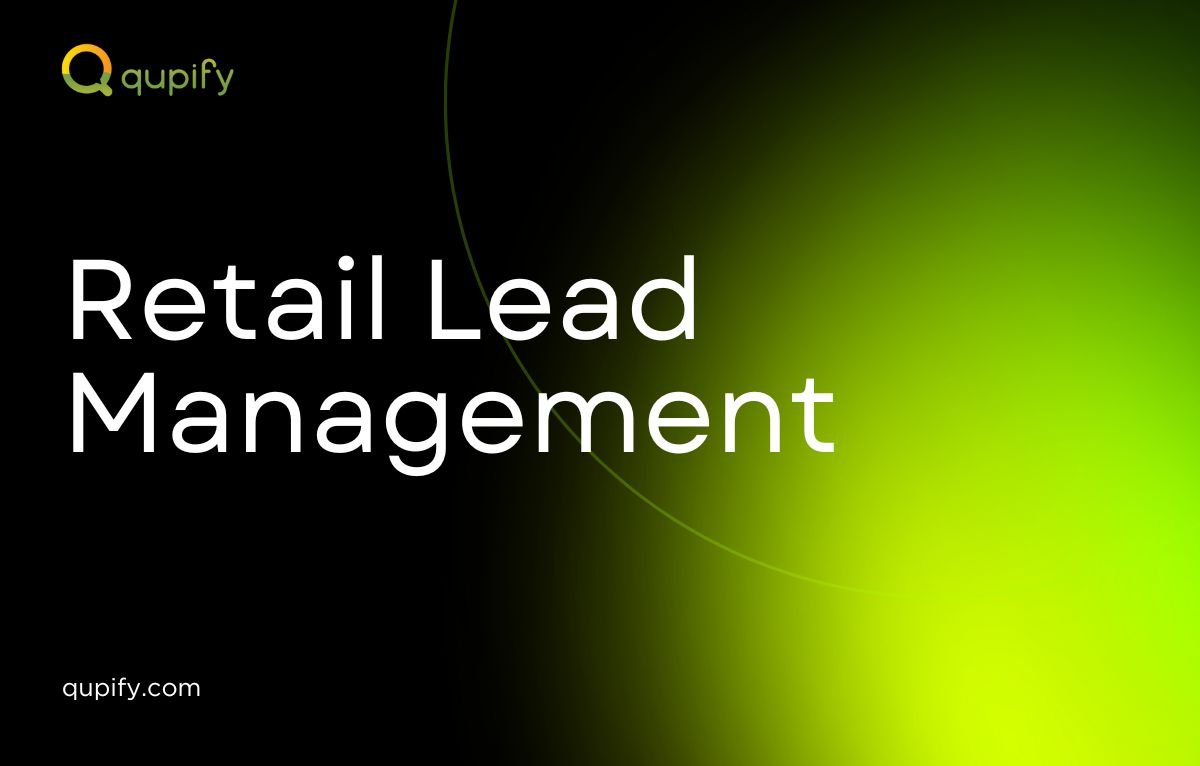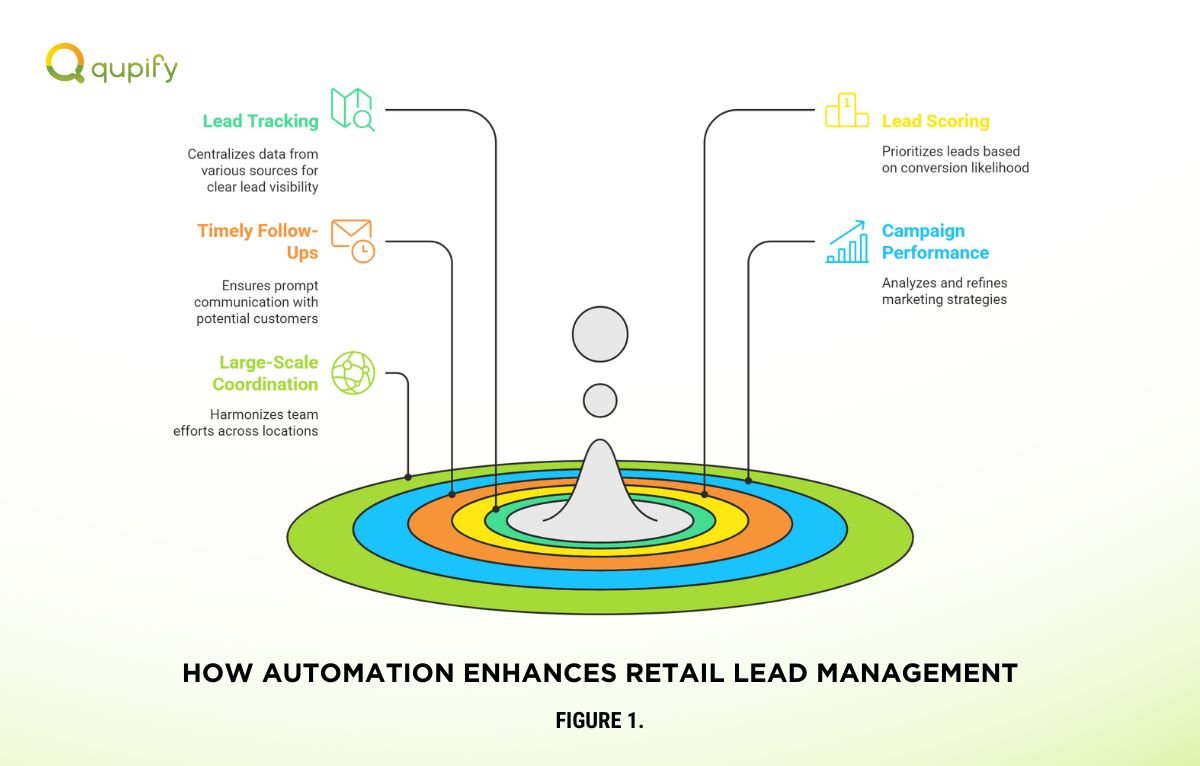Retail lead management focuses on identifying, tracking, and converting potential customers into loyal buyers. It is a vital process for any retail business, ensuring no opportunity is missed and every lead is nurtured efficiently.
A recent report highlights that companies that excel in lead management can see a 10% or greater increase in revenue within six to nine months of implementation.
Over the years, retail lead management has undergone a significant transformation, shifting from manual spreadsheets and phone calls to automated systems powered by cutting-edge technology.
This shift has not only improved efficiency but has also paved the way for businesses to scale operations without compromising on quality.

Retail lead management involves managing potential customer data, tracking their interactions with your business, and guiding them through the sales funnel until they make a purchase.
It ensures timely communication and personalized engagement, which are key to turning leads into paying customers.
In its early days, this process was entirely manual, involving handwritten records, spreadsheets, and phone logs.
While this worked for small-scale businesses, it became overwhelming and inefficient for larger operations.
Traditionally, retail businesses relied on manual processes to manage leads. Teams would record inquiries, track customer interactions, and manually follow up with prospects.
While effective in its time, this approach was labor-intensive and prone to errors, such as missed follow-ups and duplicated efforts.
With the rise of digital tools, automation has become a game-changer. Today, Customer Relationship Management (CRM) systems equipped with lead management features are used to handle leads efficiently.
The shift to automation has saved businesses countless hours and ensured that no lead slips through the cracks, especially in large-scale settings.

Automation transforms retail lead management by streamlining repetitive tasks, improving accuracy, and enabling scalability. Here are some specific ways automation can help businesses:
Automated systems record and organize customer data from multiple sources, such as websites, social media, and in-store visits. This centralized data allows businesses to have a clear view of each lead’s journey.
Automation tools evaluate leads based on their likelihood to convert, assigning scores based on factors like browsing history, email engagement, and purchase intent. This helps businesses focus on high-priority leads.
Automated reminders and email triggers ensure that no follow-up is delayed. For instance, if a potential customer abandons their cart, an automated email can encourage them to complete the purchase.
Automation provides detailed analytics to assess the effectiveness of marketing campaigns. This data allows businesses to refine strategies in real-time.
For large businesses, automation supports seamless coordination between teams across different locations, ensuring consistent customer experiences.
Automation reduces the time spent on manual tasks, allowing teams to focus on strategy and customer engagement.
By minimizing errors and optimizing workflows, businesses can save on operational costs while maximizing revenue.
With personalized communication and timely responses, customers feel valued, increasing their likelihood of making a purchase.
Automation enables businesses to manage larger volumes of leads without compromising on quality, making it ideal for large-scale retail operations.
Manual Lead Management | Automated Lead Management |
Time-consuming and error-prone | Streamlined and accurate |
Limited scalability | Easily handles large volumes |
Reactive communication | Proactive and timely engagement |
Qupify simplifies retail lead management through a range of automation tools and services designed to streamline critical tasks: